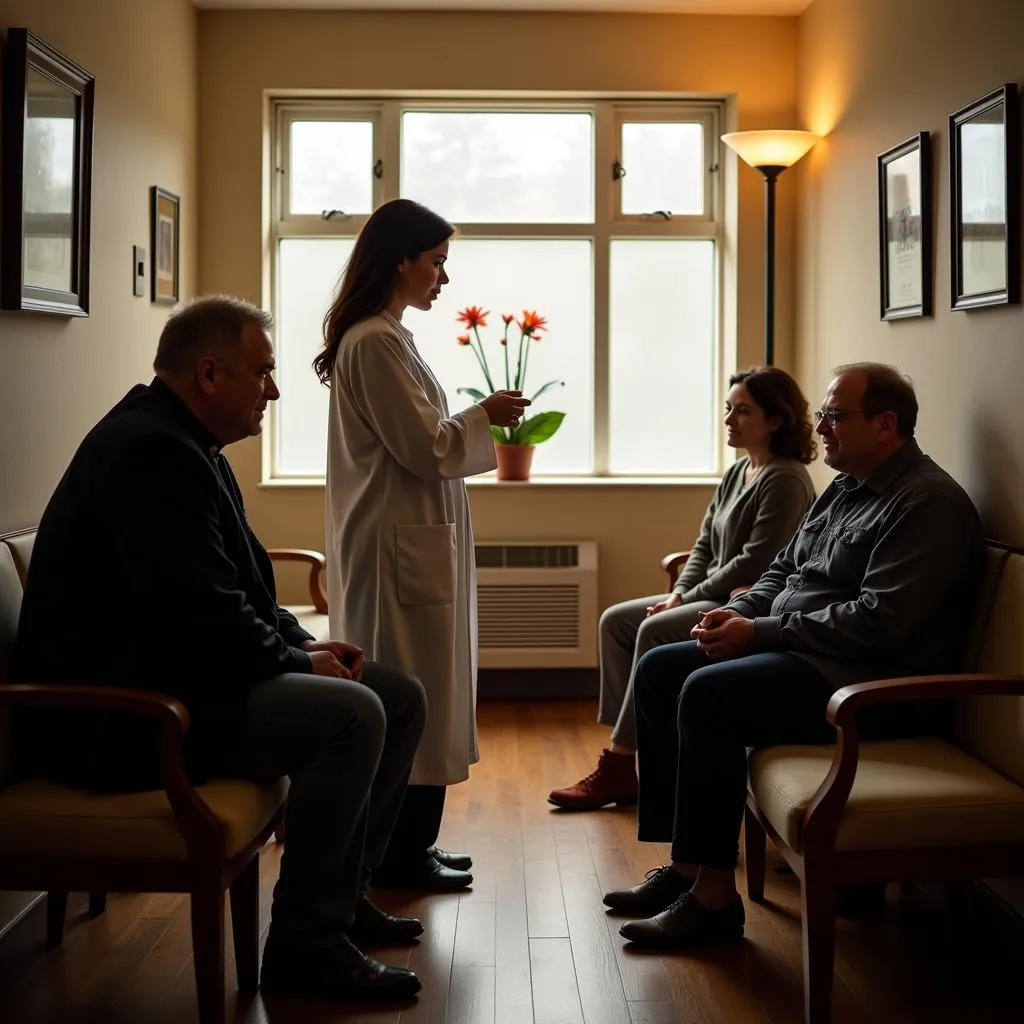Understanding the crucial role of chaplains in a hospital setting means understanding the specific requirements these individuals need to fulfill. A hospital chaplain provides spiritual and emotional support to patients, families, and staff, navigating moments of crisis, grief, and ethical dilemmas with compassion and expertise.
Essential Qualifications for Hospital Chaplains
While specific requirements can vary between hospitals and healthcare facilities, several core qualifications are universally sought after:
- Ordination and Endorsement: Most hospitals require chaplains to be ordained or endorsed by a recognized religious organization. This signifies a deep commitment to a faith tradition and the completion of rigorous theological education.
- Master of Divinity (M.Div.): An M.Div. degree or its equivalent is generally considered the gold standard in chaplaincy education. This graduate-level program typically encompasses coursework in pastoral care, theology, ethics, and counseling.
- Clinical Pastoral Education (CPE): CPE is a vital component of chaplaincy training, providing hands-on experience in a clinical setting. Supervised by experienced chaplains, chaplain residents apply their theological knowledge and develop practical skills in patient care.
- Board Certification: While not always mandatory, board certification through organizations like the Association of Professional Chaplains (APC), demonstrates a chaplain’s commitment to professional standards and continuing education.
 Chaplain comforting patient in a hospital bed
Chaplain comforting patient in a hospital bed
Navigating the Spiritual Landscape of a Hospital
Hospital chaplains encounter a diverse tapestry of beliefs and spiritual practices. Beyond their own faith traditions, they must demonstrate:
- Interfaith Sensitivity and Competency: Effective chaplains cultivate respect and understanding for a wide range of religious and spiritual perspectives, ensuring inclusive care for all.
- Cultural Humility: Hospitals serve diverse communities, and chaplains need to be attuned to how culture intersects with health, illness, and spirituality. This requires ongoing self-reflection and a willingness to learn from patients and families.
- Ethical Decision-Making: Chaplains often provide guidance in ethically complex situations, advocating for patient autonomy and navigating end-of-life care decisions with sensitivity and respect.
The Heart of Chaplaincy: Compassion and Presence
Beyond qualifications and certifications, certain qualities are intrinsic to effective chaplaincy:
- Compassionate Listening: Chaplains offer a non-judgmental space for patients and families to share their fears, anxieties, and spiritual struggles, providing comfort and validation.
- Empathy and Presence: A chaplain’s ability to simply be present with someone in pain, offering support and connection without imposing personal beliefs, is invaluable.
- Emotional Resilience: Witnessing suffering and loss is an inherent part of chaplaincy. Cultivating emotional resilience helps chaplains navigate these challenges while maintaining their own well-being.
 Chaplain talking with family members in a hospital waiting room
Chaplain talking with family members in a hospital waiting room
Finding Your Path to Hospital Chaplaincy
Aspiring chaplains can benefit from proactively seeking opportunities to develop their skills:
- Volunteer at a Local Hospital: Gaining firsthand exposure to the hospital environment and interacting with patients and staff can be incredibly valuable.
- Network with Chaplains: Reaching out to chaplains in your community can provide insights, mentorship, and guidance as you navigate your journey.
- Attend Chaplaincy Conferences: Conferences offer opportunities for professional development, networking, and staying abreast of current trends in the field.
Conclusion
Hospital chaplains play a vital role in providing holistic care, tending not only to the physical but also the emotional and spiritual needs of those facing illness and loss. The path to becoming a chaplain requires dedication, compassion, and a commitment to lifelong learning.
Frequently Asked Questions about Chaplain Requirements Hospital
- What is the difference between a chaplain and a pastor? While both roles often involve spiritual guidance, pastors typically serve a specific congregation, while chaplains serve people from diverse backgrounds in settings like hospitals, universities, or the military.
- Do I need to be religious to become a chaplain? While chaplains often come from a faith background, it’s more important to demonstrate an understanding of diverse beliefs and the ability to provide inclusive spiritual care.
- How long does it take to become a board-certified chaplain? The journey to board certification generally involves completing an M.Div., a year of CPE residency, and passing a certification exam. The timeline can vary based on individual paths.
- What are some of the challenges of being a hospital chaplain? Hospital chaplains encounter emotionally demanding situations, navigate ethical dilemmas, and witness suffering. Self-care and a strong support system are essential for navigating these challenges.
 A diverse group of hospital chaplains gather for a meeting
A diverse group of hospital chaplains gather for a meeting
Need support? Contact us at Hotline: +842437655121, Email: [email protected] or visit us at 298 Cau Dien Road, Minh Khai Ward, Bac Tu Liem District, Hanoi, Vietnam. Our dedicated team is available 24/7 to assist you.